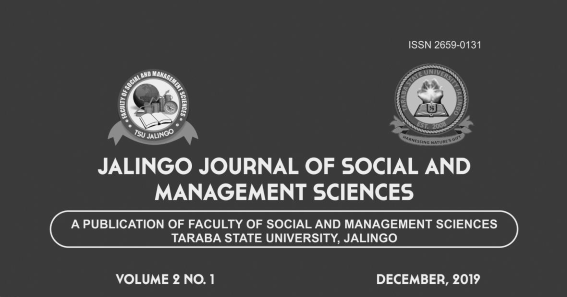Impact of Exchange Rate on Selected Macroeconomic Variables in Nigeria, 19862017.
Keywords:
Exchange rate, Interest rate, Inflation, Money supply, Gross domestic product, NigeriaAbstract
This paper examines the impact of exchange rate on selected macroeconomic variables in Nigeria. The paper covers the period of 1986 to 2017 taking into consideration the trade liberalization policy (SAP era) and Export Promotion Policy (post SAP era) (1999 to date). The aim is to analyze the extent to which exchange rate affects selected macroeconomic variables. The data for this study were analyzed using analytical tools. The analytical tools involved the use of Vector Error Correction Model, Augmented Dickey-Fuller (ADF) test, stability test, Lag Order Selection Criteria, and the Johansen Co-integration Test. The result revealed that the coefficients of GDP, inflation rate, money supply and trade openness conformed to a priori expectation while interest rate did not. This implies that as GDP rises, the exchange rate will appreciate. This is because as the country produces more goods, it means there would be an increase in exports, which boosts the exchange rate of a country. Similarly, an improvement in exports will also increase the level of openness of the economy, which affects the exchange rate positively. Conversely, as inflation rises, the value of money erodes, which leads to a depreciation of the exchange rate, because the exchange rate is computed using relative commodity prices of different countries. The study found that GDP, trade openness and inflation rate significantly affect exchange rates, while interest rate and money supply do not significantly affect the exchange rate in Nigeria. The study, therefore, concludes that while some macroeconomic variables are instrumental to exchange rate appreciation, others are detrimental to it and leads to exchange rate depreciation. On the basis of these findings, the paper recommends that the government of Nigeria should focus on expanding productive activities so as to improve the exports of the nation which can lead to a reduction of exchange rate depreciation, It also recommends that the monetary authorities should avoid rapid variations in the growth of money so as to avoid frequent increases in the rate of inflation which is detrimental to exchange rate appreciation.

Downloads
Published
Issue
Section
License
Copyright (c) 2023 JALINGO JOURNAL OF SOCIAL AND MANAGEMENT SCIENCES

This work is licensed under a Creative Commons Attribution-NonCommercial 4.0 International License.
